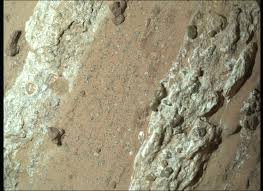"NASA's Perseverance Rover Discovers New Evidence of Ancient Life on Mars"

NASA's Perseverance Rover Discovers New Evidence of Ancient Life on Mars
NASA’s Perseverance rover, which landed on Mars in February 2021, has made a groundbreaking discovery that could fundamentally alter our understanding of life in the universe. The rover has found new evidence suggesting that Mars may have once supported microbial life. This discovery builds on the hypothesis that life could have existed on the Red Planet in the past, a theory that has intrigued scientists for decades.
Perseverance’s mission is part of NASA’s broader Mars exploration efforts aimed at studying the planet’s geology and climate, while also searching for signs of ancient life. The rover was designed to explore Jezero Crater, a location scientists believe was once home to a large lake. The crater, which is thought to have formed billions of years ago, is of particular interest because it harbors rocks that may have once been altered by water, offering a promising environment for life to have potentially emerged.
One of the key pieces of evidence gathered by Perseverance is related to the ancient lakebed in Jezero Crater. Through its sophisticated instruments, the rover has been able to analyze the mineral composition of rocks in the area. These rocks contain carbonates, which are typically formed in the presence of water. Carbonates on Earth are associated with life because they can trap and preserve organic molecules, which are the building blocks of life. The discovery of carbonates on Mars suggests that the planet might have had a more hospitable environment in its distant past, with conditions suitable for life to thrive.